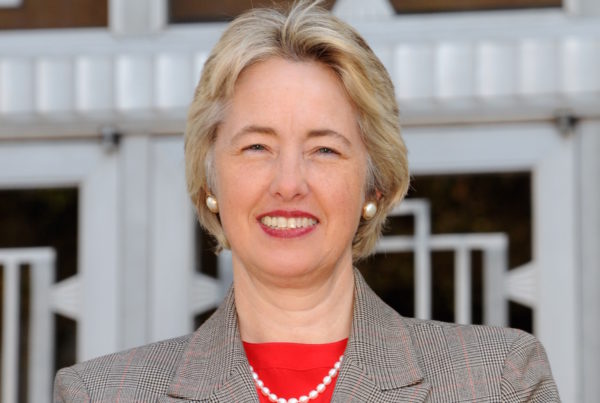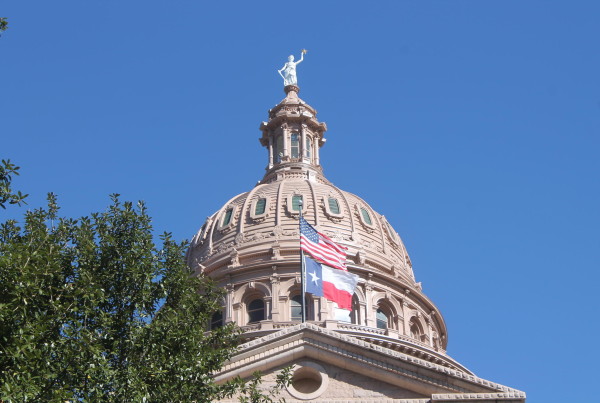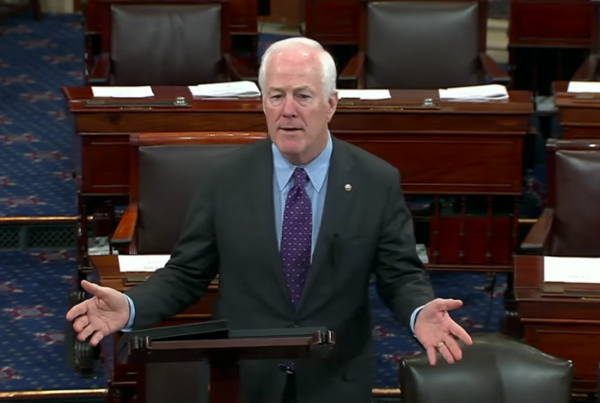There’s a long tradition in conservative Texas politics of keeping big government out of people’s lives. We heard Lt. Gov. Dan Patrick make that point at last year’s state Republican convention. Patrick explained his opposition to the Obama administration’s transgender “bathroom” rules, saying, “This has everything to do with keeping the federal government out of local issues.”
Over the years, that same custom often meant state officials left it up to local ones to decide what was best for their communities. But that tradition may be changing.
This past March, Republican Senator Lois Kolkhorst introduced Senate Bill 6 at a committee hearing in Austin, saying the bill, “makes several changes in the law designed to increase privacy and protections in our locker rooms, showers, changing rooms, dressing rooms, and our restrooms.”
SB 6, also known as the bathroom bill, sounded an awful lot like the Obama rule, in that it was telling local governments who could use which restroom or locker in a school building.
The Texas bathroom bill died at the end of the legislative session. But the Legislature did pass other “preemptive laws,” laws that allow the state to preempt local control. The most controversial, the so-called ‘sanctuary cities’ law, allows the state to remove local officials from office if they refuse to enforce federal immigration laws. And preemptive bills, including a revived bathroom bill, make up more than a third of Governor Greg Abbott’s agenda for the upcoming special session.
“The governor has decided to make the issue of local control a primary sort of focal point,” says Jay Aiyer, assistant professor of political science at Texas Southern University. “The idea of stopping an expansive, socially expansive local government plays well for his political base. It never has hurt a Republican politician to go after the city of Austin, for example.”
Not all such conflicts are as simple as a GOP-led state governments taking on majority Democratic cities. In fact, some Republican officials have a big problem with this trend.
“Being in my sixties and having been in and out of politics for a long time, the conservative point of view was always, ‘Government closest to the people is best.’ Local control,” says Harris County Judge Ed Emmett.
Emmett parts company with Gov. Abbott over one of Abbott’s top priorities for the special session, restricting property tax increases. Emmett is no fan of property taxes. But they are the only means Texas allows counties for raising revenue.
“Harris County has over 2 million people who live in unincorporated Harris County,” says the judge. “We’re responsible for the roads, the parks, animal control, all that activity. Compare that to Dallas County, where they have fewer than 10,000 people in unincorporated Dallas County. So to do a one-size-fits-all tax plan doesn’t make any sense.”
Then there’s the issue of tree ordinances, specifically those that let cities bar property owners from cutting down trees on their own land. Abbott wants a bill to override such ordinances. That would affect not only Austin, but also Emmett’s neighborhood of West University Place.
“You know, West University Place has a pretty clear regulation of trees that need to be protected,” says Emmett. “The state somehow seems to think they should come in and make that decision for everybody in the state. I just don’t think that’s right, and I think it flies in the face of conservative principled government.”
In many ways, Emmett’s and Abbott’s positions reflect a divide in the Texas GOP. That divide is one reason several of the preemptive bills that will come before the special session didn’t pass during the regular session.















